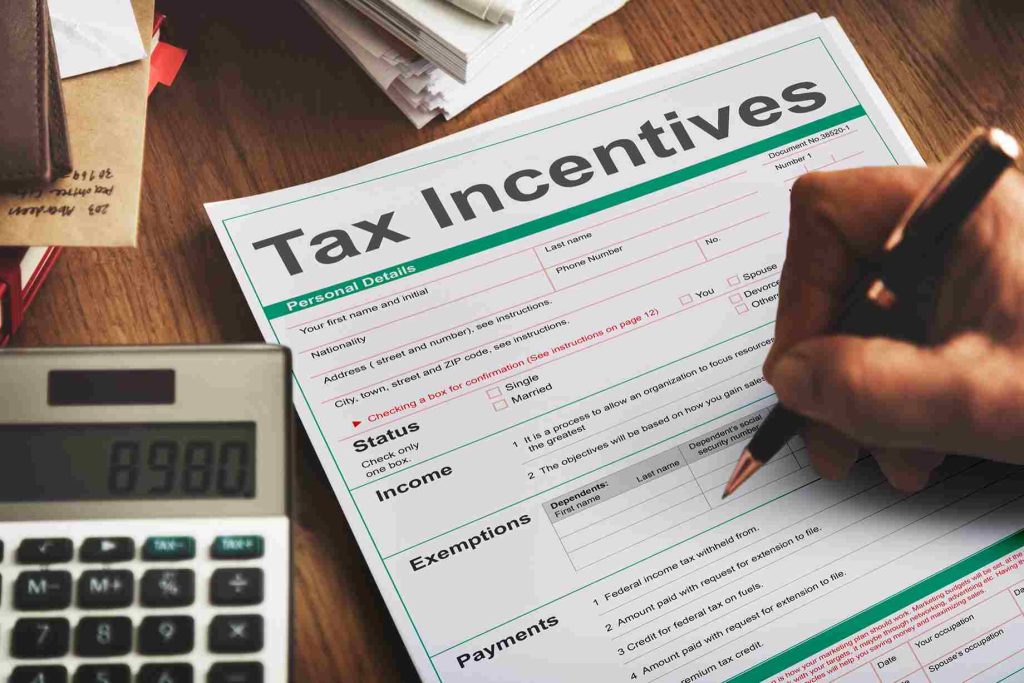The Comptroller of Income Tax plays a pivotal role in the functioning of any country’s financial system. Income tax is a fundamental source of government revenue, providing funding for essential public services, infrastructure projects, healthcare, and education.
At the same time, taxpayers, both individuals and businesses, rely on clear guidance and fair enforcement to navigate their tax responsibilities effectively. The Comptroller acts as the central authority bridging the needs of taxpayers with the government’s need for revenue. This article explores the role, functions, and impact of the Comptroller of Income Tax in detail.
What is the Comptroller of Income Tax?

The Comptroller of Income Tax is a high-level government official or office responsible for overseeing the administration of income tax. This role typically derives authority from national legislation, which empowers the office to monitor compliance, audit returns, and enforce the application of tax laws. The office is crucial for maintaining fairness, transparency, and efficiency within the tax system.
A key function of the Comptroller is to act as a liaison between the government and taxpayers. Governments rely on income tax revenue for public spending, while taxpayers require accurate information, timely processing, and equitable treatment. The Comptroller ensures that both sides are served effectively, reducing the risk of disputes, revenue shortfalls, or inequitable enforcement.
The office is also responsible for providing policy insights. By analyzing trends in taxpayer behavior, the Comptroller can advise policymakers on potential improvements to tax regulations. These insights help lawmakers adapt the legal framework to meet evolving economic conditions and taxpayer needs.
Functions of the Comptroller of Income Tax

The functions of the Comptroller of Income Tax can broadly be divided into management, oversight, and enforcement, with additional responsibilities in education and advisory roles.
1. Managing Tax Collection
One of the Comptroller’s primary duties is to manage the collection of income tax. This includes ensuring that taxpayers submit accurate returns, remit payments on time, and maintain records of all transactions. Efficient management of tax collection enables governments to plan budgets and allocate resources effectively, ensuring that public services are fully funded.
The Comptroller also monitors deadlines and processes for filing, minimizing errors and delays. This systematic approach reduces administrative inefficiencies and strengthens the overall reliability of the tax system.
2. Monitoring Compliance
Oversight of taxpayer compliance is another crucial responsibility. The Comptroller ensures that individuals and businesses calculate taxable income correctly, claim eligible deductions appropriately, and adhere to all relevant laws. Compliance monitoring protects the tax system from fraud, underreporting, and evasion.
Modern tax authorities increasingly use digital tools and data analytics to track filing patterns and detect anomalies. These tools allow the Comptroller to identify irregularities early, intervene when necessary, and provide corrective guidance to maintain fairness across all taxpayers.
3. Enforcing Tax Regulations
Enforcement is central to the authority of the Comptroller of Income Tax. The office has the power to conduct audits, impose penalties for late or incorrect filings, and pursue legal action against violators. Such enforcement ensures that taxpayers comply with the law and deters fraudulent activities.
The balance between enforcement and fairness is critical. While penalties must be effective enough to prevent non-compliance, they should also be proportionate to avoid unfair hardship. The Comptroller’s office plays a key role in maintaining this balance.
4. Providing Guidance and Support
Beyond management and enforcement, the Comptroller also serves an educational function. The office provides guidance on filing procedures, exemptions, tax credits, and other compliance-related matters. Through public resources, workshops, and advisory services, the Comptroller helps taxpayers understand their obligations and reduces errors in reporting.
This guidance benefits both individuals and businesses. Individuals gain clarity on personal income tax filing, while businesses can plan budgets, manage cash flow, and ensure compliance with corporate tax obligations.
5. Policy Advice and Strategic Planning
The Comptroller also contributes to policy development by advising lawmakers on potential regulatory improvements. Observations on taxpayer behavior, compliance trends, and revenue collection efficiency inform adjustments to existing legislation. This function ensures that the tax system evolves to meet the needs of a modern economy while remaining fair and transparent.
Impact on Businesses and Individuals

The functions of the Comptroller of Income Tax have a direct effect on both businesses and individual taxpayers. For businesses, clear guidance and consistent enforcement of tax laws allow for better financial planning.
Companies can budget accurately, manage cash flow, and allocate resources efficiently when they understand their tax obligations. By ensuring that all businesses comply with the same standards, the Comptroller promotes fairness and a level playing field, which is particularly important for small and medium enterprises competing with larger corporations.
For individuals, the office provides clarity on filing requirements, tax credits, and eligible deductions. Accurate guidance helps prevent mistakes that could result in penalties, while also ensuring that taxpayers take advantage of lawful benefits. The educational aspect of the Comptroller’s role fosters transparency, making the system more approachable and less intimidating for ordinary citizens.
Legal Authority and Framework

The authority of the Comptroller of Income Tax comes from national tax legislation. Operating within a clearly defined legal framework ensures that the office functions fairly, consistently, and transparently. This legal authority allows the Comptroller to conduct audits, issue notices for non-compliance, review claims for deductions or exemptions, and coordinate with other governmental agencies to enforce tax regulations.
By adhering to statutory requirements, the Comptroller protects the interests of both the government and taxpayers. This ensures that tax revenue is collected efficiently while taxpayers are treated equitably and protected against arbitrary enforcement. A strong legal framework is essential for maintaining public trust in the taxation system.
Technology and Data in Modern Tax Administration

In today’s digital era, the Comptroller of Income Tax increasingly relies on technology and data analytics to fulfill its functions. Sophisticated software allows for real-time monitoring of tax filings, analysis of patterns, and detection of potential fraud. This technological integration enhances efficiency and accuracy, enabling the office to handle large volumes of data without compromising compliance standards.
Data-driven approaches also allow the Comptroller to identify trends, such as frequent filing errors or sectors with high rates of non-compliance. These insights inform policy adjustments and targeted educational campaigns, improving overall system efficiency. Furthermore, digital platforms facilitate taxpayer access to information, filing assistance, and updates on regulatory changes, reducing errors and supporting voluntary compliance.
Challenges in Income Tax Administration

Despite its authority and resources, the Comptroller of Income Tax faces several challenges. Tax evasion and underreporting remain significant concerns, particularly in industries with complex or informal revenue streams. The globalization of business and the rise of digital transactions also complicate monitoring and enforcement.
Another challenge is balancing enforcement with fairness. Penalties must be sufficient to deter non-compliance without imposing undue hardship on taxpayers. This requires careful judgment and a nuanced approach to ensure equity. Additionally, keeping taxpayers informed about evolving regulations and filing procedures demands consistent communication, educational campaigns, and responsive support services.
Benefits of a Strong Comptroller of Income Tax Office

A well-functioning Comptroller office benefits the entire economy. Reliable tax collection supports public services and infrastructure development, which in turn fosters economic growth. Businesses gain from predictable tax obligations and fair enforcement, allowing them to invest confidently and plan for expansion. Individuals benefit from guidance and transparency, reducing errors and minimizing the risk of disputes with tax authorities.
Moreover, by analyzing data and providing policy recommendations, the Comptroller contributes to a more efficient and adaptable tax system. Continuous improvements based on evidence help maintain a balance between government revenue needs and taxpayer rights, promoting trust in the system.
Conclusion
The Comptroller of Income Tax is an indispensable part of any country’s financial infrastructure. Its responsibilities encompass managing tax collection, monitoring compliance, enforcing regulations, providing guidance, and advising policymakers. Through these functions, the office ensures that income tax laws are applied fairly and effectively, protecting government revenue while supporting taxpayers.
For businesses, the Comptroller provides clarity, predictability, and equitable enforcement. For individuals, the office offers guidance, education, and support in meeting tax obligations. Modern challenges, including complex financial transactions and globalization, make the role of the Comptroller even more critical.
Ultimately, the Comptroller of Income Tax upholds transparency, fairness, and efficiency in tax administration. By integrating technology, analyzing data, and maintaining a strong legal and operational framework, the office strengthens public confidence, safeguards revenue, and supports sustainable economic growth.
Read More: Sell Structured Insurance Settlement: Legal Process, Risks, and Financial Tips
